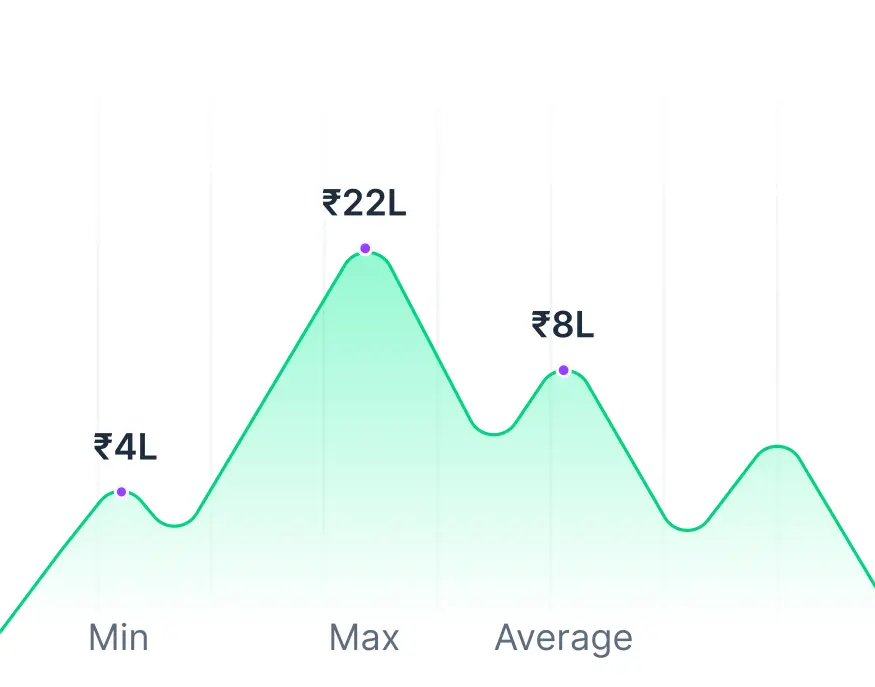Why Choose a Career in Data Analytics?
A data analytics career path is one of the most rewarding in the current job market. Organizations are increasingly depending on data-driven decisions, creating demand for professionals with analytical expertise. Here’s why choosing this career makes sense:
High demand across industries: Finance, healthcare, e-commerce, and technology rely heavily on analytics.
Attractive salaries: The earning potential continues to grow with experience and skills.
Career flexibility: Data analytics opens doors to multiple domains, from business intelligence to data science.
Career growth opportunities: Professionals can steadily progress from entry-level analysts to leadership roles.
Future-proof profession: The reliance on big data ensures long-term job security.
How to Start Your Career in Data Analytics
Starting your journey on the right career path for data analytics requires a mix of skills, certifications, and practical exposure. Here are the key steps:
Build foundational knowledge in statistics, SQL, Excel, and data visualization which are typically included in the syllabus for a data analytics course.
Upskill with certifications: Enrolling in reputed data analytics certification courses adds credibility.
Practice real-world projects to showcase problem-solving abilities.
Leverage internships or entry-level roles for practical exposure.
Develop soft skills such as communication and critical thinking, essential for explaining insights to stakeholders.
Entry-Level Roles in Data Analytics
When starting your data analytics career track, you may begin with entry-level roles such as:
Data Analyst: Focused on data cleaning, reporting, and visualization.
Business Analyst: Works closely with business teams to translate data into decisions.
Junior Data Engineer: Manages data pipelines and ensures data availability.
These roles allow you to build strong foundations while exploring future career prospects in data analytics.
Mid-Level Roles and Growth Opportunities
As you gain experience, you can progress toward mid-level positions. The data analytics career growth phase often includes:
Senior Data Analyst: Handling complex datasets and advanced visualization.
Data Scientist (transition path): Using machine learning and predictive modeling.
BI Developer: Designing dashboards and advanced reporting systems.
Data Consultant: Advising businesses on data strategies.
These positions enhance your visibility in the organization while expanding your career prospects. That’s why building a strong data analytics portfolio is critical to landing these top roles.
Advanced & Leadership Roles in Data Analytics
The advanced stage of your career path for data analytics involves leadership, strategy, and cross-functional impact. Common roles include:
Analytics Manager: Leading analyst teams and driving project success.
Head of Data/Chief Data Officer: Creating organizational data policies and driving a data-driven culture.
Data Strategy Leader: Aligning analytics with long-term business goals.
These roles not only offer higher compensation but also allow professionals to shape the future of data adoption in organizations. Progression in this field also varies with prior experience and the time it takes to complete a data analytics course, which determines how quickly professionals can move forward.
Alternative Career Transitions into Analytics
Not all professionals start in analytics. Many transition from fields like IT, finance, or marketing. The data analytics career track allows career changers to adapt and thrive:
IT professionals move into data engineering roles.
Finance professionals use their domain knowledge in financial analytics.
Marketing experts shift into digital and consumer analytics.
Upskilling through data analytics certification courses makes the transition smoother and ensures career growth.
Future Scope and Career Outlook
The future of the data analytics career path looks promising. According to industry reports, the demand for skilled analysts will continue to rise with advancements in AI and big data technologies. Key trends include:
Greater integration of AI and machine learning into analytics.
Rising demand for domain-specific analytics experts.
Increased reliance on cloud-based analytics platforms.
Expanding global opportunities as businesses worldwide adopt analytics.
This ensures strong data analytics career prospects for both beginners and experienced professionals.
Summary: Your Roadmap to a Data Analytics Career
To summarize, the data analytics career path provides endless opportunities for growth, transition, and leadership. From entry-level analysts to senior data leaders, every stage of the journey offers learning and rewards. By building the right skills, pursuing certifications, and staying adaptable, you can accelerate your career growth in data analytics and secure your future in this high-demand field.
StarAgile’s data analytics certification courses are tailored to help you begin, grow, and excel at every stage of your career journey.
FAQs
1. What is the career path for data analytics professionals?
The career path for data analytics typically starts with entry-level roles like data analyst or business analyst, then progresses to mid-level positions such as senior data analyst or data scientist, and eventually leads to leadership roles like analytics manager or chief data officer.
2. How does data analytics career growth look in 2025 and beyond?
The data analytics career growth outlook is very strong, with increasing demand across industries like finance, healthcare, e-commerce, and technology. Professionals with advanced analytics and AI skills will see even faster progression into high-paying leadership roles.
3. What are the career prospects in data analytics for beginners?
Beginners have excellent career prospects in data analytics, as organizations are constantly hiring entry-level analysts, junior data engineers, and business analysts. With the right certification and hands-on training, the opportunities are limitless.
4. Can I switch careers and build a data analytics career track?
Yes, professionals from IT, finance, or marketing can successfully transition into a data analytics career track by upskilling with certification programs and learning core tools like SQL, Python, and Power BI.
5. How can StarAgile’s data analytics certification courses help my career path?
StarAgile’s data analytics certification courses provide the skills, tools, and project-based learning needed to accelerate your data analytics career path. With industry-recognized certification, you gain credibility and better career growth opportunities.







 The demand for professionals with data skills is rising rapidly, making the data analytics career path one of the most sought-after today
The demand for professionals with data skills is rising rapidly, making the data analytics career path one of the most sought-after today 















